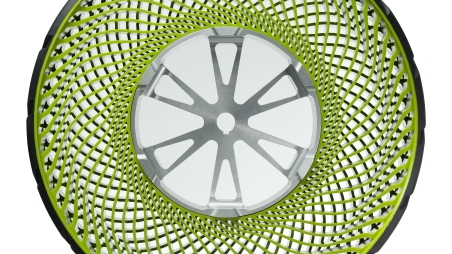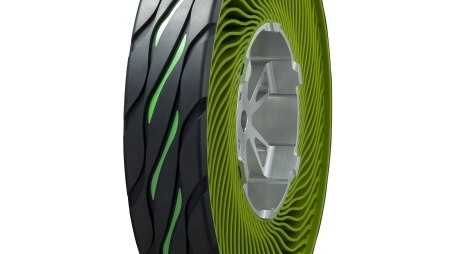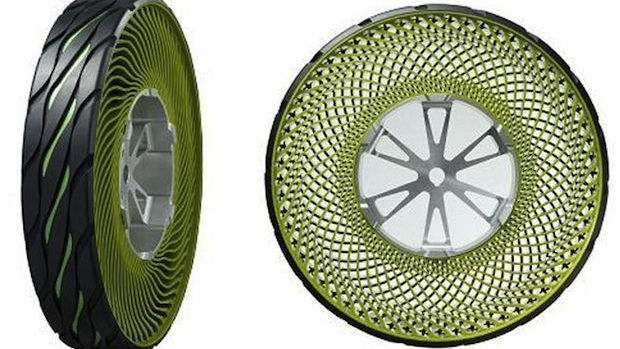Although it'd be unfair to say that tires are one of the more old-fashioned aspects of your modern car - since tire manufacturers spend millions constantly developing them - they do have their flaws.
Your typical pneumatic tire is liable to suffer punctures, which can either be inconvenient or downright dangerous depending on where and when one happens.
A tire that relies on air then is a flawed concept - but what if you could remove air from the equation?
Bridgestone has been working on just that, and has announced the development of the non-pneumatic (airless) concept tire. Not only will you finally be free of punctures, but the company also says the tire is more environmentally friendly than the regular black rings of rubber.
Construction
The concept tire uses a thermoplastic resin spoke structure along the inner sides of the tires that supports the weight of the vehicle, just as pressurized air does in a regular tire. That means no risk of leaks, and no risk of punctures.
The resin is also 100 percent recyclable which makes it far greener than regular tires, many of which go to landfill and at best, are cut up for insulation and other uses. Bridgestone envisions a continuous cycle of recycling and re-use as the thermoplastic can be constantly re-formed when heated.
Michelin also tried working with airless technology back in the early 2000s but the tech has now got to the point where its becoming production viable.
Other benefits
The consequences for puncture-proof tires are wider than simple convenience, too.
Fewer and fewer cars are being supplied with spare wheels these days, many opting for a can of tire-sealant instead. These new tires would allow all cars to go without either, saving all-important weight, currently public enemy number one in the car industry.
With no provision for a spare tire, trunk space would also be freed up - making cars more practical.
Tires have seemingly been holding back the cars they're fitted to in many areas then, but with the efforts of companies like Bridgestone, they may soon be one of the most cutting-edge technologies on your car...



